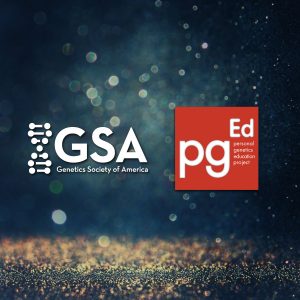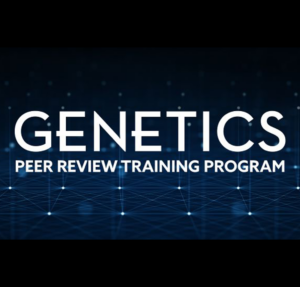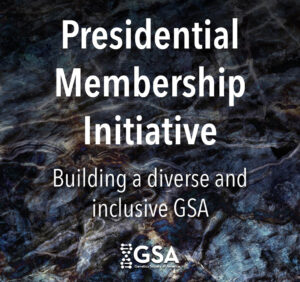 The Genetics Society of America (GSA) and the Personal Genetics Education Project (pgEd) of Harvard Medical School announce a new partnership to build public dialogue about genetic technologies. Their joint program aims to better equip scientists to engage in discussions about genetics with all communities, with special emphasis on those who have been marginalized, economically disadvantaged, or otherwise excluded from conversations about science.
The Genetics Society of America (GSA) and the Personal Genetics Education Project (pgEd) of Harvard Medical School announce a new partnership to build public dialogue about genetic technologies. Their joint program aims to better equip scientists to engage in discussions about genetics with all communities, with special emphasis on those who have been marginalized, economically disadvantaged, or otherwise excluded from conversations about science.
“In this time of reckoning with racial injustice and health inequality, geneticists have a responsibility to engage with the public on the ethical and social dimensions of their work. Indeed, many of our members want to take part in these efforts, but they are unsure of how best to do so,” says GSA’s Executive Director, Tracey DePellegrin. “We are thrilled that pgEd is offering its guidance and experience to help our researchers achieve more inclusive education and public engagement.”
Genetic technologies are transforming healthcare and society. A person may seek out genetic testing to inform their medical care or fertility treatment; or to explore their ancestry. They may encounter issues related to genetics during interactions with law enforcement, criminal justice, and immigration authorities; or when voting on proposed uses of genetic technologies (for example, to address vector-borne disease). There is a need for scientists to work with communities so people are equipped with the information they want about genetics. And science, too, benefits from the experiences and perspectives of the communities we serve.
The new partnership responds to this need by mobilizing scientists to engage in two-way conversations with the public on the benefits and ethical, legal, and social implications of genetics. It also aims to help researchers better understand the experiences and perspectives of a diverse range of stakeholders and how they are affected by genetic research and technology. “In pgEd’s travels, we have shared what is happening in genetics with countless communities. And what we have learned from the people we’ve met could fill volumes. Our team is eager for the opportunity to share our experiences with the GSA and to learn from the work of others in the genetics community.” said pgEd Director of Programs and geneticist, Marnie Gelbart.
The program will launch with a series of online workshops for scientists to increase their awareness of the ethical and social dimensions of genetics and build skills for public engagement. These events will explore topics from the pgEd curriculum, such as precision medicine, genome editing and the environment, and the history of eugenics. pgEd will share approaches for illustrating how genetics has propelled new medical treatments and welcoming many viewpoints on the use of new technologies, such as CRISPR. Interactive discussions will address pgEd’s experiences engaging with a range of communities and will include guests from pgEd’s community partnerships.
GSA and pgEd aim also to build public engagement internship and fellowship programs. These offerings will be shaped by input from workshop participants and each component will center around creating ways for scientists to engage meaningfully with their communities — whether personal or professional.
This initiative will build upon the strengths of the two partner organizations. Since 2006, the pgEd team has been talking with people from many walks of life about genetics through a respectful, inclusive, and non-advocacy approach. Along with their expertise in creating online curricula (including 11 lessons that accompany the 2020 PBS documentary, The Gene: An Intimate History), pgEd will draw on their breadth of programs—including a series of six Congressional briefings in Washington, DC, training thousands of teachers, partnering with communities of faith, and working with creators of television and film.
Founded in 1931, GSA is a scientific membership society for researchers and educators in the field of genetics. Using the tools of genetics and genomics, nearly 6,000 GSA members from more than 50 countries around the world investigate a wide variety of biological questions and applications. Partnering with pgEd will help GSA scientists to build bridges between the research community and public groups—particularly those who normally feel excluded from scientific discussions.
This project will launch at 12:00 p.m. EST, December 8, 2020, with an online event titled “Meeting the Moment: How can scientists contribute to a broad conversation on genetics and society?” Participants will:
- Learn about pgEd’s approach to engaging with communities and addressing controversial and/or sensitive topics such as reproductive genetic testing, eugenics, DNA testing in law enforcement, race and ancestry, and genome editing and the environment;
- Discuss common challenges and barriers in communicating about the scientific, ethical, and social dimensions of genetics;
- Help shape the topics and goals of the 2021 workshop series and future initiatives by providing input and asking questions.
Speakers:
- Denise Montell, GSA President
- Ting Wu, pgEd Director and Co-founder
- Marnie Gelbart, pgEd Director of Programs
All members of the GSA community are invited to participate by registering at the link below.
About GSA:
The Genetics Society of America serves an international community of more than 5,000 scientists who use genetics to make new discoveries and improve lives. GSA advances the field through conferences, the journals GENETICS and G3: Genes|Genomes|Genetics, advocacy, professional development programs, and more.
About pgEd:
Founded in 2006 in the Department of Genetics at Harvard Medical School, pgEd is a team of scientists, social scientists, educators, and community organizers, who talk with people about genetics in every way that it touches our lives – from health to the workplace and from the environment to the criminal justice system.




